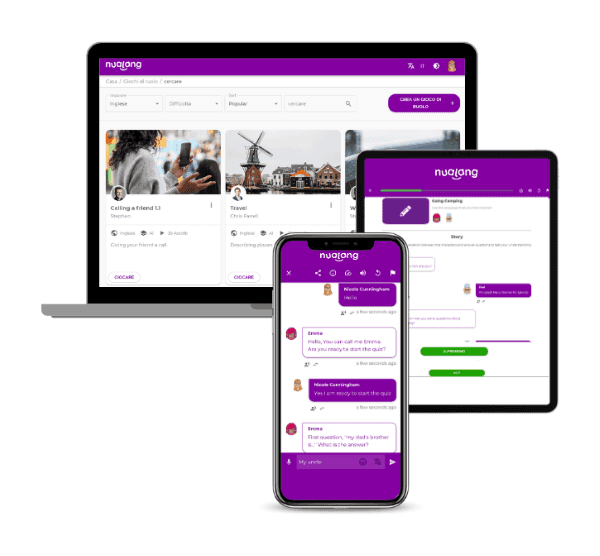Challenges of Learning English as a Foreign Language
Discover the challenges of learning English as a foreign language and how Nualang can help your students face these challenges.
English is the most widely spoken language in the world with around 1.45 billion speakers, including native and non-native speakers. This means it is hugely beneficial for people from all over the world to be able to speak English. It can help unlock many opportunities for people, whether it be for work or travel. In the following sections we will discuss some of the challenges associated with teaching and learning English as a foreign language and how Nualang can be used to help.

Challenges:
1. Pronunciation:
English is not a phonetic language. This means that often we do not say a word in the same way that it is spelled. The word ‘read’ provides a great example of this. The following two sentences would require a different pronunciation of the word: “I read a great book yesterday,” and “I will read the book today.” This differentiation can be a cause of great confusion and frustration for non-native speakers who are trying to learn English. Words with different sounds but the same spelling are known as heteronyms.
2. Spelling:
Many words in the English language have different spellings but sound the exact same. Again, this can be very confusing for students who are trying to learn the language as a foreign language. For example, the words ‘pair’ and ‘pear’ are pronounced the same but are spelled differently. You can have a ‘pair’ of people or a ‘pear’ like the fruit. To add to the challenges non-native speakers face when learning English, individual letter sounds can also be spelled many different ways. For example, the letter ‘f’ can be spelled as ‘gh’ like “rough,” spelled as ‘ph’ like “phone,” or spelled with a double ‘f’ as in “bluff.”
3. Slang and Colloquialisms:
This is difficult to teach in the classroom but for someone to truly master a new language and be able to communicate freely, it is important to be aware of. While the ‘proper’ version of the language will usually be taught in the classroom, each language, culture, and region where that language is spoken will have their own unique slang and colloquialisms when speaking the language. A fun example of this in the English language is the phrase “break a leg,’ meaning to wish someone good luck! As a literal translation this sort of phrase may be confusing to a student. Slang and colloquialisms can be best learned through music, TV, radio, podcasts, and by conversing with native speakers.
How can Nualang help:
Nualang has a range of innovative and interactive features that can help language teachers and students alike. Nualang’s interactive game modes allow teachers to upload content from their classes that their students can play and practise outside of the classroom. These game modes allow students to practise their spelling, pronunciation, reading and writing skills. Nualang’s game modes include:
- Fill in the blanks
- Story mode
- Roleplay
- Translation exercises
- Pronunciation exercises
- Chatbot activities

Join Nualang today and experience the benefits of these features and take your language teaching to the next level and improve the communication skills of your students!
